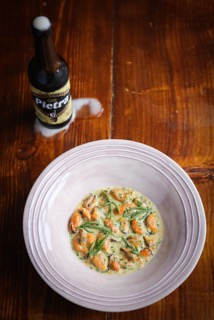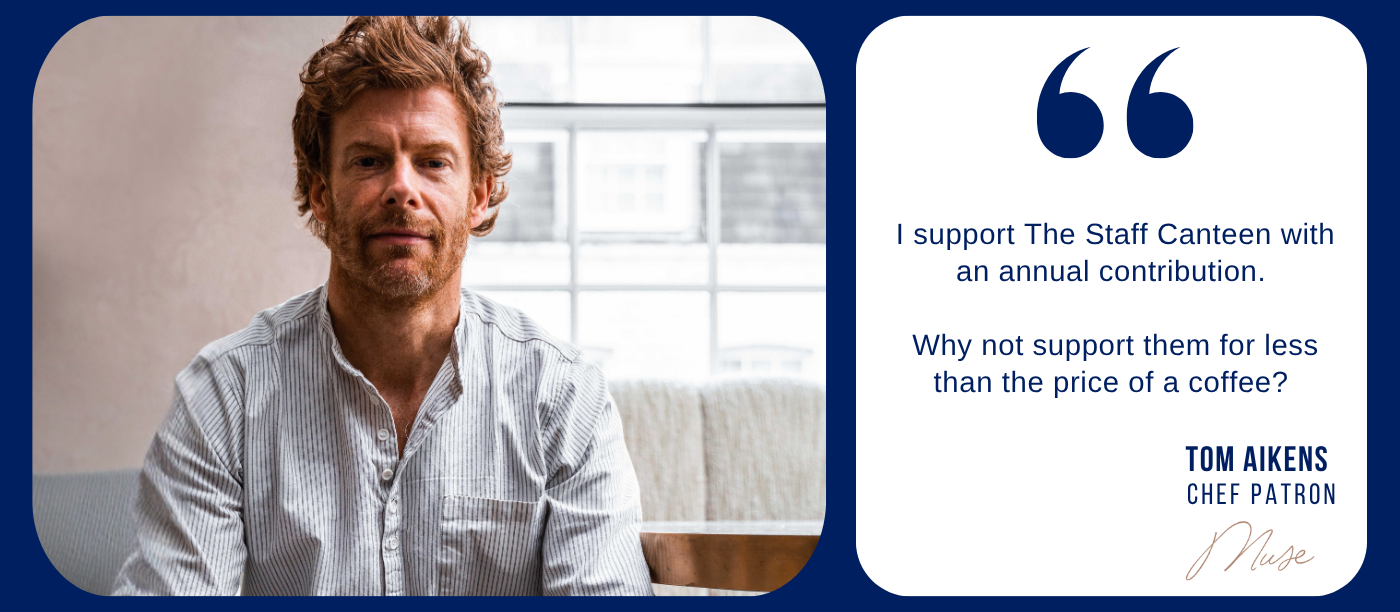'I feel no responsibility to my guests' health. They're old enough to be accountable for their own eating decisions'

DO the health virtues of food have their place in fine dining restaurants?
A momentous day is upon us. We don't mean Brexit, but the end of veganuary, dry January and likely of most people's new year's resolutions. Diners can flock back out to eat as the longest wait for payday comes to an end.
Month-long marketing fads aside, we wondered how has society, and people's attitudes to eating out changed? How big a concern are the nutritional benefits of what they eat when they dine out - and more importantly, should chefs take any notice?
To answer these questions, we spoke to chef Josh Overington of Le Cochon Aveugle and Michelin-starred chef owner of Salt, Paul Foster.
Then, we asked Anna Boglione, daughter of Petersham Nurseries founders Gael and Francesco Boglione and the co-author of a tasting menu (prepared by chef Martin Sweeney) and educational programme designed to promote gut health.
Eating out is still a special occasion, customers should be able to indulge
For Paul Foster, the answer is simple. Paying guests are adults and should be treated as such, and how healthy they decide to be is entirely up to them.
He said: "I personally feel absolutely no responsibility to my guests health at all. They are all old enough to be accountable for their own eating decisions."
"A regular customer for us is once per month at most, 3 meals a day over a month is roughly 90 meals. 89 of those meals are their choice and will have a much greater impact on their health than 1 meal at Salt."

recipe by Paul Foster
A balanced menu has many benefits: better margins, happy customers, and hopefully, good tasting food
Josh Overington believes he owes it to his customers to make the dining experience special - and that means indulgence has to have its place.
"No-one is coming to my restaurant to eat a few salad leaves and then go for a jog after," he said.
"At the same time, I don't want people rolling out of the restaurant feeling like they need to go on a juice cleanse for three days after."
Justifying his decision not to offer a vegan tasting menu - describing veganuary as "a bit of a marketing ploy" and "a bit of a cult," Josh argued that it's hard to find the balance required to create a good tasting menu with the added restriction of it being vegan.
"Not everything is carb heavy, I try and cook with as little cream and butter as we can, I keep things light and fresh working through the whole menu anyway."
"You can make a vegetable broth, which is delicious and doesn't leave people feeling short changed."
This has the added bonus of yielding better profit margins than the more expensive products - like turbot cooked in butter, a slab of beef or a scallop.
"It's a moderation thing. Not every dish needs to be the most expensive, luxurious ingredient."

Shetland mussels
cooked

hollandaise and truffle recipe
The focus should be flavour
The bottom line for both Paul and Josh is that food should taste good, and that should come first.
Paul said: "I don’t care if it comes out healthy or not - just does it taste good and what can make it better."
"We are in the business of pleasing our guests and indulgence is a big part of that if they want to over indulge that’s great and it’s their choice."
There's room for everyone at the top
For Anna Boglione, daughter of Petersham Nurseries founder who created the restaurant's new Gut Health menu in collaboration with nutritionist Hannah Richards - the lurch towards more health-conscious fine dining restaurants satisfies a thirst for the diverse and the novel, combined with a better understanding of nutrition and - not least - more frequent meals out.
"People want different experiences. They want to feel like they're being taken out of their day to day life and what we hold in higher regard isn't necessarily white tablecloths and bow-ties."
For her, a healthy meal doesn't mean it can't be very high-end.
"The dining experiences we do are very much fine dining - taking all the ethos of the gut and eating healthily and trying to work out how food is linked to inflammation, the brain, the heart, the liver, mood..."
"It's about teaching people that you can eat at a very high standard whilst taking all the health elements into account."

recipe by Petersham Nurseries chef Martin Sweeney
For Anna, introducing a health component into menu design adds a level of creativity to the process.
She said: "You can be really inventive, you can experiment and you can create amazingly diverse dishes with incredible produce that's super healthy for you. We're redefining what health food is."
"People want food to focus more on the produce and the taste and the food itself rather than the trimmings around it."
Anna said she "absolutely" thinks that fine dining food should promote good health, and that how much virtue we get from our food is a principle which should underlie everything we cook and eat.
"I think you can come up with incredible dishes and still be healthy. The way we're going - there are so many amazing chefs out there doing these incredible things."
What are your thoughts chefs? What is your approach to menu design, and what do you prioritise - health, balance, flavour, or a combination of the three?
UPDATE: This article previously quoted Josh Eggleton of The Pony and Trap instead of Josh Overington. An error was made during the editing process, which is now under review. The Staff Canteen apologises for any misunderstanding this may have caused.
Michelin-starred The Pony and Trap in Bristol offers vegan dishes year-round and these are integral to the restaurant's ethos.

For 17 years, The Staff Canteen has been the meeting place for chefs and hospitality professionals—your stories, your skills, your space.
Every recipe, every video, every news update exists because this community makes it possible.
We’ll never hide content behind a paywall, but we need your help to keep it free.
If The Staff Canteen has inspired you, informed you, or simply made you smile, chip in £3—less than a coffee—to keep this space thriving.
Together, we keep the industry connected. Together, we move forward.














